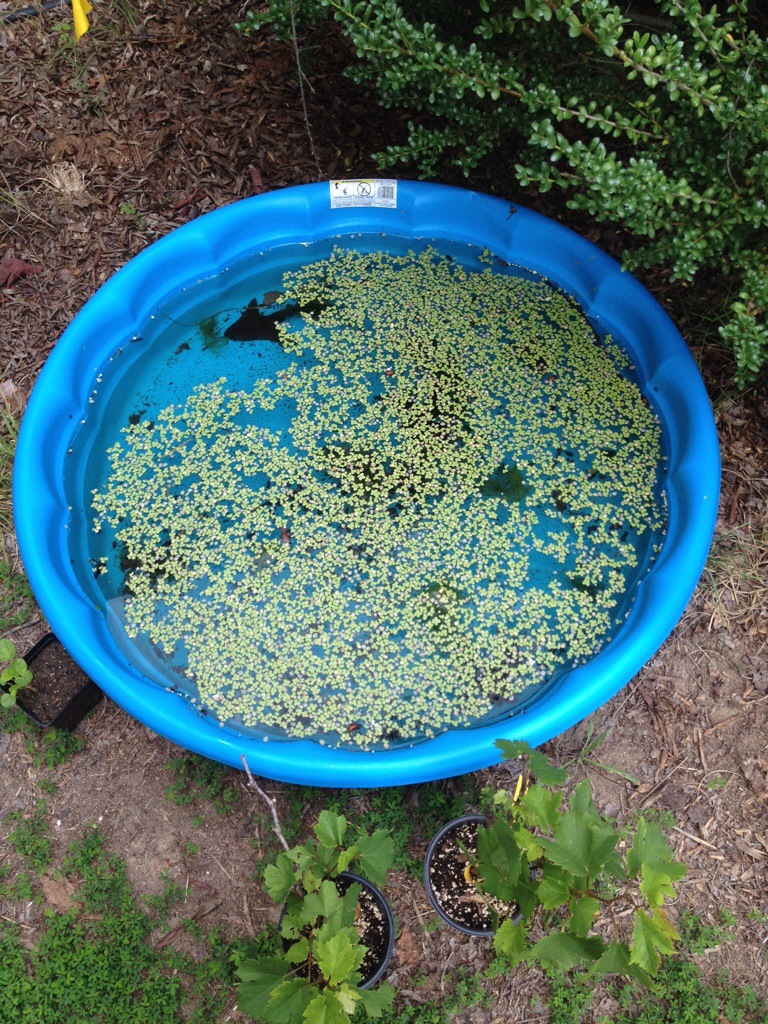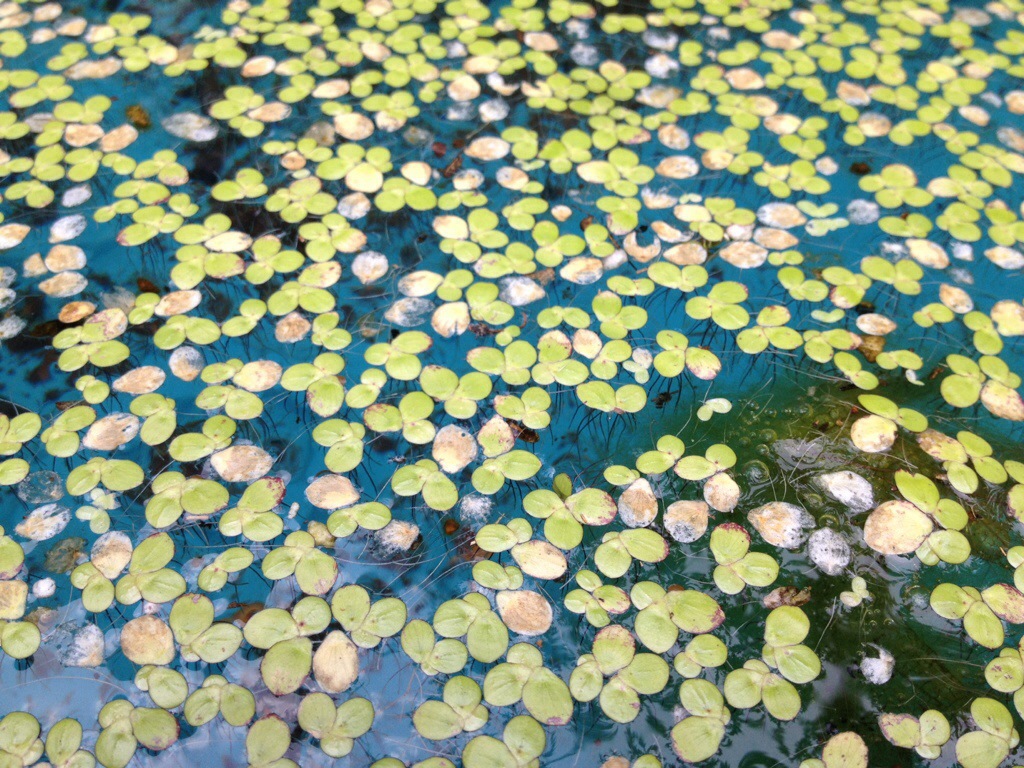We finally got some duckweed! What’s duckweed, you ask? Duckweed is a tiny ,floating aquatic plant often found in lakes and ponds. It is considered invasive by some, and it will spread if left unchecked. In fact, under ideal conditions duckweed can double in size every 24-36 hours. It is extremely efficient at pulling nutrients out of water, so it is often found in small ponds with large catchment areas and runoff.
Duckweed can be used as both a fertilizer high in nitrogen, or as livestock feed high in protein. Chickens, rabbits, goats, horses, pigs and of course ducks will all nibble on duckweed. Fish, especially tilapia, will completely annihilate it, so it’s best to keep it away from them if you want any left to regrow. Duckweed is also used in greywater systems where it thrives on the high nutrient water, and is then composted to safely cycle the waste water.
For now, we have our duckweed in a kiddie pool while we figure out a way to best utilize it. The goldfish in our hand dug pond have gotten a few snacks, and they love it so we need to figure out a way to keep it from being completely decimated. But we plan on using it as a supplemental source of protein for our laying birds, and as another way to cycle nutrients on our homestead. Duckweed!


August 7, 2014 at 7:40 pm
OK wonderful grandson and granddaughter to be (soon). Now, I have a challenge for you. Just received a notice and I also noticed that I have bagworms on at least two of my pine trees. We thought we got them off, but obviously not. What is your advice on what can be safely sprayed on the trees. One can be reached (to the top); the other two tall. But in addition to my hand sprayer, I have plant food attachment for my water hose and one of those extended light pmi power washers. Advice asap please.
August 8, 2014 at 11:33 pm
hmmmmmn… I dont know much about bagworms, but I have seen them a few times at work and they never seem to do much damage there. BT, which is a bacteria (Bacillus thuringiensis) that infects lots of insects and kills them is very effective and very safe. It’s considered safe enough to spray on organic vegetables up to the day of harvest. It comes in spray and dust form, and i’ve seen it made by Safer, and sometimes called thuricde. Neem oil is also effective, and relatively safe compared to other insecticide products.
Lots of native pollinators and wasps naturally feed on their young, and they do a good job of keeping their population in check. Planting flowering things like mint, dill, fennel, cilantro, yarrow and asters attract these wasps and they do a better job than any spray in the long run. Be careful spraying, even these “safe” products are pretty nasty if you get it in your mouth/lungs/eyes. Love you!